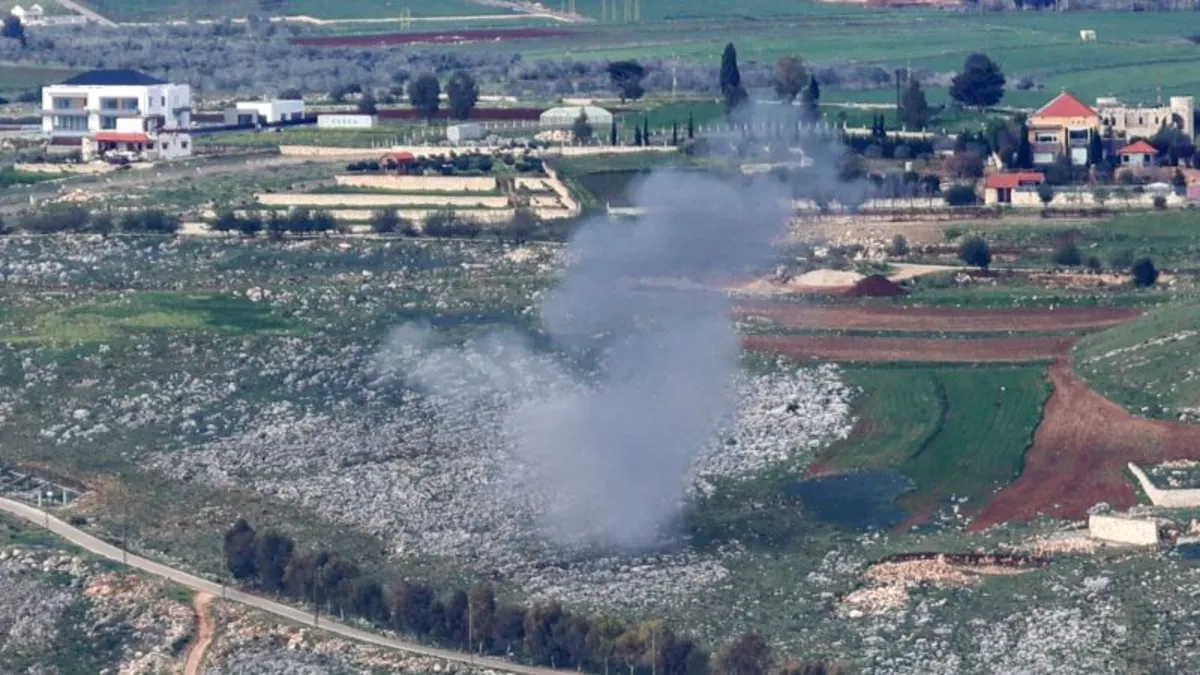
The Israeli Air Force has reported a series of airstrikes targeting Hezbollah positions in southern Lebanon, marking a significant escalation in tensions following a fragile ceasefire that had previously brought a temporary calm to the region. This military action comes in response to cross-border rocket fire, which has intensified concerns about the stability of the area.
Witnesses in southern Lebanon described the strikes as violent and widespread, with reports reaching CNN outlining the severity of the military actions. The exchange of fire began after the Israeli military detected five projectiles launched towards northern Israel, prompting air raid sirens to sound across the region. According to the Israel Defense Forces (IDF), three of these projectiles were successfully intercepted by the country's air defense systems, while two fell short and landed within Lebanon.
In response to these attacks, Israeli Prime Minister Benjamin Netanyahu directed the IDF to take “robust action against dozens of terror targets,” emphasizing that “Israel will not allow any harm to its citizens or its sovereignty.” This statement underscores the Israeli government's commitment to national security amidst rising threats from militant groups.
Hezbollah has not claimed responsibility for the recent rocket fire, leaving uncertainty about the origins of the attack. In the aftermath, the Lebanese military reported discovering and dismantling “three primitive rocket launchers” in the region north of the Litani River, as part of their investigation into the incident.
Despite the escalation, the UN peacekeeping force in Lebanon, known as UNIFIL, expressed alarm at the Saturday morning violence, urging all parties to uphold their commitments to peace. They highlighted the risks to civilian lives and the fragile stability that had been observed in recent months, warning that further escalation could have dire consequences for the entire region.
Israeli Defense Minister Israel Katz placed blame on the Lebanese government for the cross-border attacks, asserting the need for a decisive military response. “We promised security to the Galilee communities - and that is exactly what will happen,” Katz stated, addressing concerns for the safety of northern Israel's inhabitants.
In contrast, the Lebanese presidency condemned the actions that have led to renewed violence, with President Joseph Aoun directing the army to protect citizens and investigate the attacks. This highlights the complex dynamics at play as both nations navigate the rising tensions along their border.
Israel has maintained a military presence in five locations within southern Lebanon, despite previous agreements to withdraw as part of a ceasefire deal established in November of last year. This agreement was intended to reduce the frequency of cross-border strikes and bring an end to months of full-scale warfare. The last accusation from Israel regarding Hezbollah firing projectiles across the border occurred in early December.
The current escalation in northern Israel follows a recent resumption of military operations in Gaza, effectively ending a fragile truce that had been upheld since January. As tensions rise, the international community watches closely, fearing that any miscalculation could lead to a broader conflict in an already volatile region.